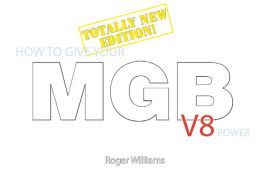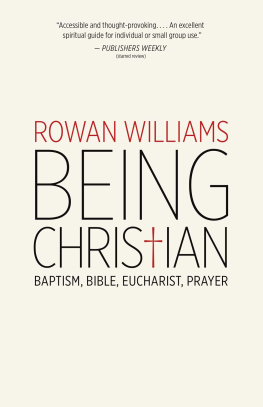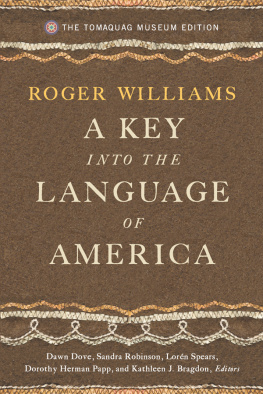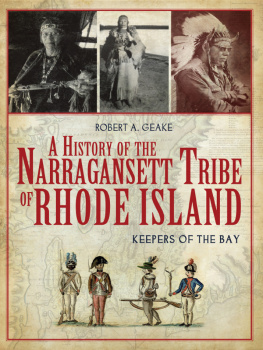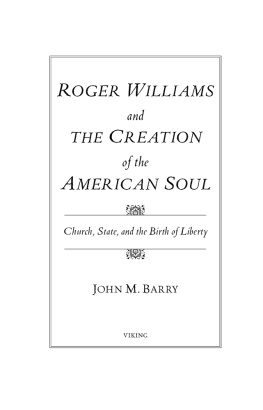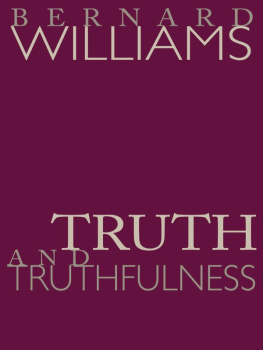DECODING ROGER WILLIAMS
The Lost Essay of Rhode Islands
Founding Father
________________
Linford D. Fisher
J. Stanley Lemons
Lucas Mason-Brown
BAYLOR UNIVERSITY PRESS
2014 by Baylor University Press, Waco, Texas 76798-7363
All Rights Reserved. No part of this publication may be reproduced, stored in a retrieval system, or transmitted, in any form or by any means, electronic, mechanical, photocopying, recording, or otherwise, without the prior permission in writing of Baylor University Press.
Cover Design by Charles Brock, Faceout Studio
Cover Image is a sample of the Roger Williams shorthand, taken from the mystery book at the John Carter Brown Library, which is subtitled An Essay Towards the Reconciling of Differences Among Christians. Courtesy of the John Carter Brown Library at Brown University.
Book Design by Diane Smith
A slightly different version of Roger Williams on Indian Conversion is reproduced with the permission of the William and Mary Quarterly, where it first appeared as Linford D. Fisher and Lucas Mason-Brown, By Treachery and Seduction: Indian Baptism and Conversion in the Roger Williams Code, William and Mary Quarterly, 3rd ser., 71, no. 2 (April 2014).
eISBN: 978-1-4813-0292-0 (Mobi/Kindle)
eISBN: 978-1-4813-0291-3 (ePub)
This E-book was converted from the original source file by a third-party vendor. Readers who encounter any issues with formatting, text, linking, or readability are encouraged to notify the publisher at . Some font characters may not display on all e-readers.
To inquire about permission to use selections from this text, please contact Baylor University Press, One Bear Place, #97363, Waco, Texas 76798.
Library of Congress Cataloging-in-Publication Data
Fisher, Linford D.
Decoding Roger Williams : the lost essay of Rhode Islands founding father / Linford D. Fisher, J. Stanley Lemons, and Lucas Mason-Brown.
212 pages cm
Includes bibliographical references and index.
ISBN 978-1-4813-0104-6 (hardback : alk. paper)
1. BaptismHistory of doctrines17th century. 2. Williams, Roger, 1604?-1683. 3. Eliot, John, 16041690. 4. Norcott, John, 1676. 5. Williams, Roger, 1604?1683. Key into the language of America. I.Title.
BV811.3.F57 2014
234.1612--dc23
2013049571
Printed in the United States of America on acid-free paper with a minimum of 30% post-consumer waste recycled content.
CONTENTS
Foreword
Ted Widmer
Part I
A Key into the Language of Roger Williams: Cracking and Interpreting the Roger Williams Code
Part II
A Brief Reply to a Small Book Written by John Eliot (ca. 1680)
Roger Williams
Part III
Baptism Discovered Plainly and Faithfully, According to the Word of God (London 1675 [1672])
John Norcott
Part IV
A Brief Answer to a Small Book Written by John Norcot
Against Infant-Baptisme (1679)
John Eliot
FIGURES AND MAPS
FIGURES
MAPS
ACKNOWLEDGMENTS

It has been a singular opportunity to collaborate on a project like this. Many people graciously gave of their time and shared information with us along the way, including Ted Widmer and Kimberly Nusco at the John Carter Brown Library; Steven Lubar, Hal Cook, Tim Harris, Jeff Hoffstein, and Eugene Charniak at Brown University; Frances Henderson at Oxford University; and Curtis Freeman at Duke Divinity School. Special thanks to the original undergraduate decoding team at Brown University who first kicked off this project: Simon Liebling, Katherine Mead, and Christopher Norris-LeBlanc. Funding for various parts of the project was provided by a Humanities Initiative Teaching and Research Grant from Brown University, along with a Summer Research Grant from the John Carter Brown Library. Several people read through the book manuscript and offered valuable suggestions, including William Brackney, David D. Hall, Tim Harris, and Adrian Weimer, in addition to the anonymous readers for Baylor University Press. Several pieces of the introductory essay were presented at the John Carter Brown Library, Duke Divinity School, Roger Williams University, and the First Baptist Church in America (sponsored by the Roger Williams National Memorial and the National Parks Service), where attentive audiences asked probing questions. Jo Fisher helpfully copyedited the entire manuscript, and Lynn Carlson created the maps of New England. Images of the Roger Williams shorthand are reproduced courtesy of the John Carter Brown Library.
The authors thank the editors and staff at Baylor University Press, in particular Carey Newman, Diane Smith, and Jordan Rowan Fannin, who graciously guided this project from submission to publication.
FOREWORD
Ted Widmer
It is not the easiest thing in the world to surprise an institution that knows itself as well as the John Carter Brown Library. Each book is beautifully catalogued by devoted librarians. Detailed files are kept on the provenance of each item in the collection. Scholars then pore over the Librarys treasures, adding to the store of bibliographic information. Knowledge is accumulated slowly and painstakingly, by well-trained professionals with deep experience in the field. The basic formula has been in place for over a century, when the holdings of a private collection were transferred to a building on the Brown campus, for the benefit of future research.
Yet all of these assumptions were thrown aside in the spring of 2012, when a team of undergraduates unveiled a breathtaking series of revelations about a document in the library that no previous scholar had been able to decipher.
For generations, the JCB staff had referred to this document as The Mystery Book. That was a fitting description for an item that was book-like in many ways, a 234-page quarto, but defied easy categorization. The Mystery Book was several books in onea printed book (albeit with the title page missing), and also a manuscript, written in a convoluted hand, around the printed words of the book. But there was a catchthe manuscript was in a complex code that had never been cracked.
The mystery deepened, with the strong supposition that the hand in question belonged to Roger Williams. That came from an unsigned note attached to the book and dated November 11, 1817. It read, in part, The margin is filled with Short Hand Characters, Dates, Names of places &c. &c. by Roger Williams or it appears to be his hand Writing. brot me from Widow Tweedy by Nicholas Brown Jr.


